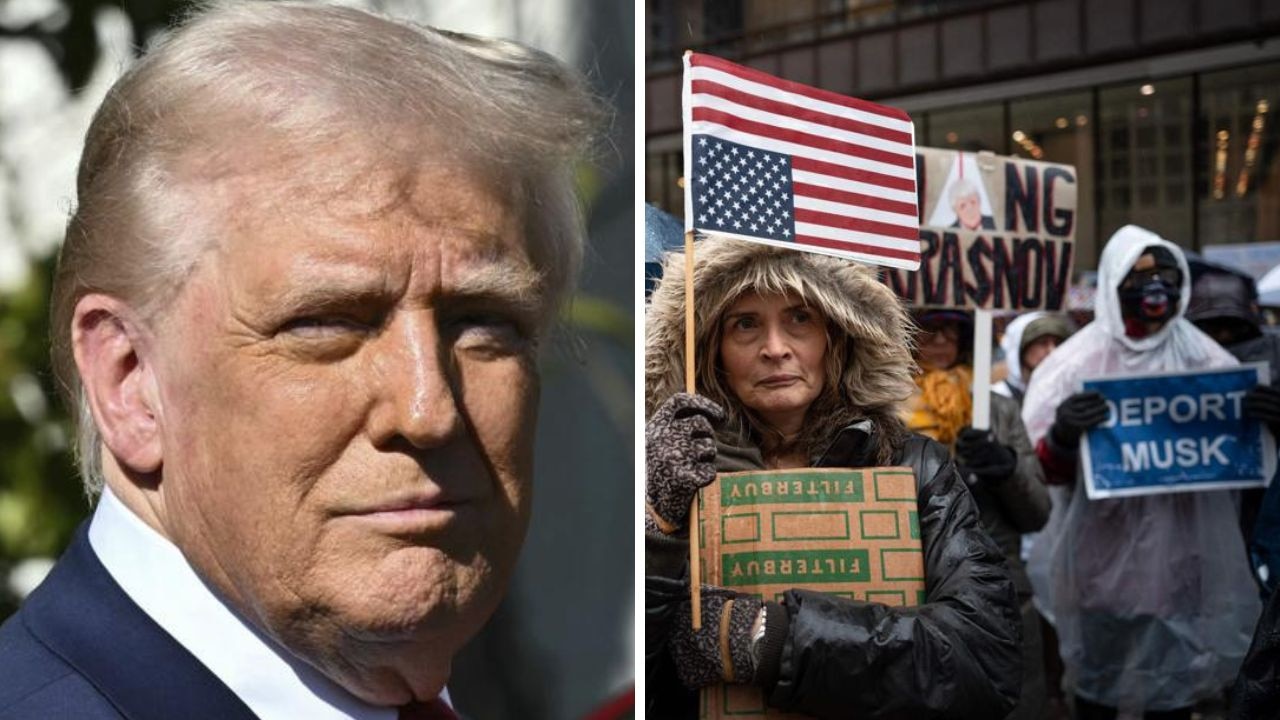Obscure law might explain why FBI raided Donald Trump’s home at Mar-a-Lago
Eleven words buried deep in American criminal law may shed light on the FBI’s reasons for searching Donald Trump’s home at Mar-a-Lago.
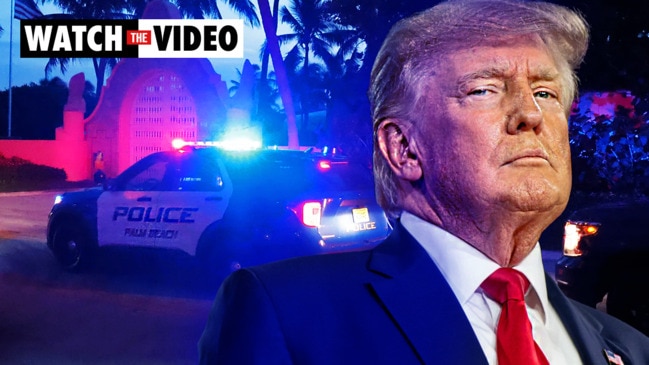
World
Don't miss out on the headlines from World. Followed categories will be added to My News.
The full implications of the FBI’s decision to search Donald Trump’s home in Florida today may lie in a relatively obscure corner of American law.
Under Title 18 of the US Code, you will find Section 2071, titled “Concealment, removal or mutilation generally”. It concerns the mishandling of government documents.
The section states that any individual with “the custody” of such documents who “wilfully and unlawfully conceals, removes, mutilates, obliterates, falsifies or destroys” them “shall be fined or imprisoned not more than three years, or both; and shall forfeit his office and be disqualified from holding any office under the United States”.
Those last eleven words are the striking part. Because if he were to be charged and convicted under that section of the law, Mr Trump could be barred from seeking the presidency again.
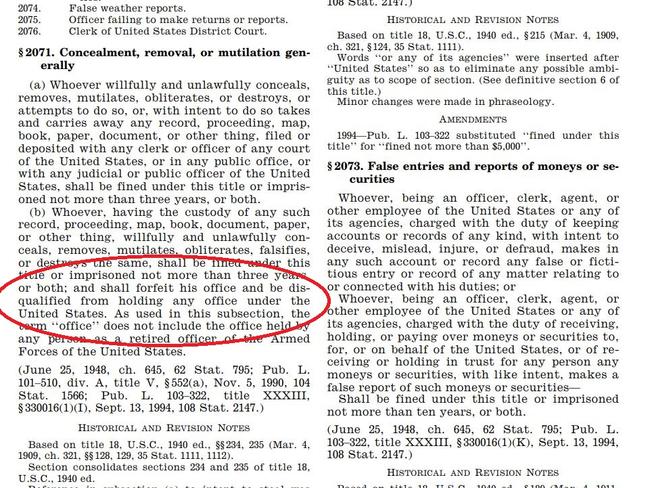
‘It's huge’: Mar-a-Lago ‘under siege’
“These are dark times for our nation, as my beautiful home, Mar-a-Lago in Palm Beach, Florida, is currently under siege, raided and occupied by a large group of FBI agents,” Mr Trump revealed on Monday evening, local time.
“Nothing like this has ever happened to a president of the United States before.”
He said the FBI agents “even broke into my safe”, describing their search as a “weaponisation of the justice system” and “persecution”.
US media, led by The New York Times, reported the search was focused on “material that Mr Trump brought with him” to Mar-a-Lago when he left office in January of 2021.
CNN reported the investigation concerned “the handling of presidential documents, including classified documents”.
It has previously been reported that Mr Trump had to return 15 boxes of documents that were improperly taken from the White House to the National Archives and Records Administration (NARA), which is tasked with preserving presidential records.
Those boxes were returned in January of this year. Among the documents in question were letters between Mr Trump and North Korean dictator Kim Jong-un (the ones Mr Trump had described as “love letters”), and the note his predecessor Barack Obama left him when handing over the presidency in 2017.
In January, NARA said it believed Mr Trump still had more records in his possession that needed to be returned. It also confirmed media reports that some White House documents had been torn up and subsequently taped back together.
Mr Trump has denied allegations that he habitually destroyed official documents during his time as president, including by flushing them down toilets.
NEW IN AXIOS: Trump denied flushing documents as president, as I learned during reporting last year for CONFIDENCE MAN. A Trump White House source recently provided PHOTOS of paper with Trump’s handwriting in two different toilets via @mikeallenhttps://t.co/wv6rrupO1n
— Maggie Haberman (@maggieNYT) August 8, 2022
Professor Harry Litman, a former US lawyer who teaches constitutional law at the University of California, said mishandling of documents was not among “the biggest crimes” Mr Trump could theoretically be charged with.
For example, Mr Trump is under investigation in Georgia for possible election interference, and a powerful congressional committee is probing his involvement in the events surrounding the Capitol riot in January of 2021.
However, Prof Litman described the potential penalty under the law mentioned above as extremely significant.
“They may have decided to go after this, disqualify him from future office, secure a conviction, and have that be the broad resolution of the whole problem of Trump,” Prof Litman speculated.
“In any event, it’s huge. But this feature of it that he couldn’t run for office in the future is really an enormous aspect of it.”
‘Unprecedented political weaponisation’
Today Mr Trump’s supporters, including a large number of sitting Republican Party politicians, echoed his assertion that the US justice system was being hijacked for partisan political purposes.
“He’s as shocked as anybody,” Mr Trump’s daughter-in-law Lara, who is married to his son Eric, told Fox News.
“This should shake you to your core, what has happened today. This is a very clear demarcation in the history of America.
“If this is what they’re able to do to the former president, think about what they could do to you, to anybody in America.”
South Dakota Governor Kristi Noem, seen as a possible presidential candidate in 2024, said the raid was “an unprecedented political weaponisation of the Justice Department”.
“They’ve been after president Trump as a candidate, as president, and now as a former president. Using the criminal justice system in this manner is un-American,” she said.
Florida Senator Marco Rubio went further, comparing the FBI search to something that might happen in the third world.
“Using government power to persecute political opponents is something we have seen many times from third world Marxist dictatorships. But never before in America,” said Mr Rubio.
Multiple Republican politicians called for the FBI to be “defunded” or “abolished”.
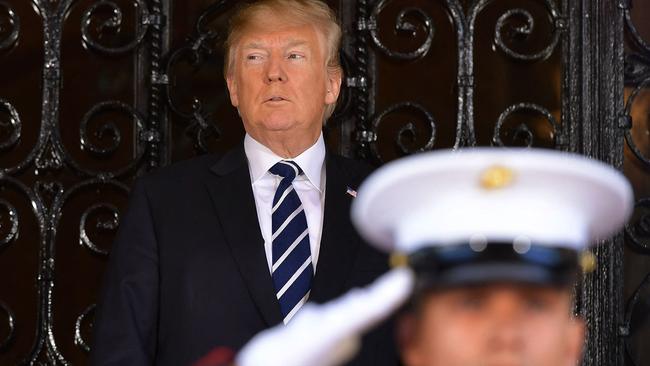
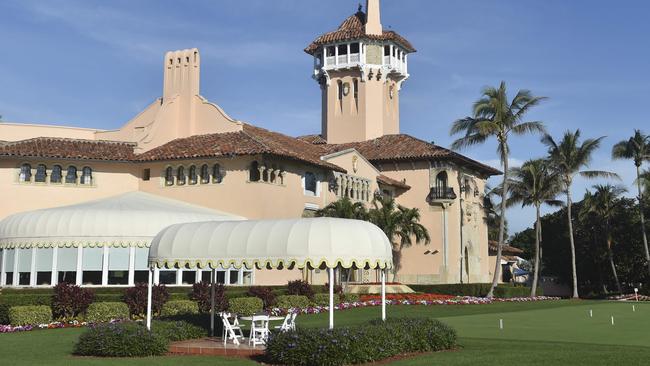
“There is no justification for sending 30 friggin’ FBI agents to the former president’s compound in the early morning, and conducting themselves this way,” said Mark Levin, a former lawyer who now hosts a show on Fox News.
“This is the worst attack on this republic in modern history. Period.
“And it is not just an attack on Donald Trump. It is an attack on everybody who supports him. It’s an attack on anybody who dares to raise serious questions about Washington and the establishment in both parties.”
FBI search ‘not done lightly’
To obtain a federal search warrant, law enforcement agents must submit an affidavit to a federal judge, explaining where they want to search and what they are looking for. They have to convince the judge there is probable cause that the items being searched for are in that location and will constitute evidence of a crime.
In this case, it is also likely that investigators sought and obtained approval from the highest levels of both the FBI and Justice Department.
The former is headed by director Chrisopher Wray, who was appointed by Mr Trump, while the latter is led by Attorney-General Merrick Garland, a former judge whom Mr Obama once nominated (unsuccessfully) to become a Supreme Court justice.
“The feds do not seek search warrants lightly. It’s a very major commitment to the case, an indication that they believe they have evidence that they think may well lead to indictment,” explained Ken White, a former federal prosecutor.
“A search doesn’t ensure they will charge Trump, or anyone, but it suggests they have found the political will to do so if necessary and overcome any policy or legal theory reasons not to move forward.”
Mr White said the previously “very unlikely” prospect of Mr Trump facing charges had “become fully plausible”.
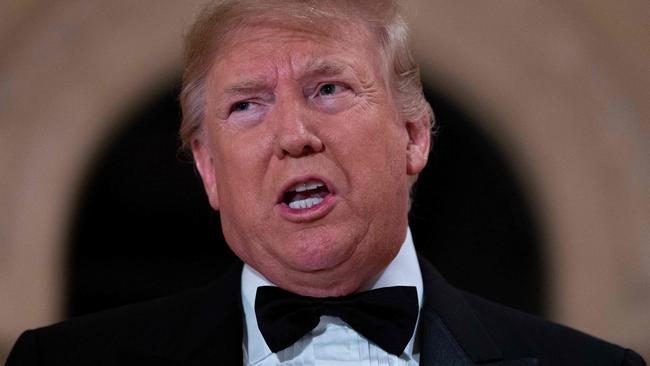
Neal Katyal, a law professor at Georgetown University who served as acting US solicitor-general under Mr Obama, said the raid clearly suggested Mr Trump was “the target of a criminal investigation by the Justice Department”.
“The best way to think about this, just in very practical terms, just imagine it’s your house or my house. And the FBI shows up, armed, and demands to come in. And they don’t take no for an answer. And they have a signed document from a federal judge. And they go so far as to break into your safe,” Prof Katyal told MSNBC.
“At the point, things are not going well for you. They have convinced a federal judge that there’s probable cause to believe a crime has been committed, that there are documents in your house that are related to that crime, and that an ordinary request like a subpoena isn’t enough, they need to go in and grab the documents.
“I think we have to patient here, but if I were Donald Trump’s lawyer right now, I would be advising my client to tell his family, ‘I am looking at jail time, and we should make plans accordingly.’”
Meanwhile, Eli Honig, a former federal prosecutor who is now a legal analyst with CNN, said investigators would not have sought a search warrant for Mar-a-Lago “lightly”.
“You can bet a judge read every word of this and agreed that there’s probable cause,” said Mr Honig.
“It’s an enormous step by the DOJ and FBI. To get a search warrant, prosecutors would have to establish probably cause that a crime was committed, and get a judge’s agreement with the prosecutors’ affidavit.
“This would have to be approved at the highest levels.”
Originally published as Obscure law might explain why FBI raided Donald Trump’s home at Mar-a-Lago





